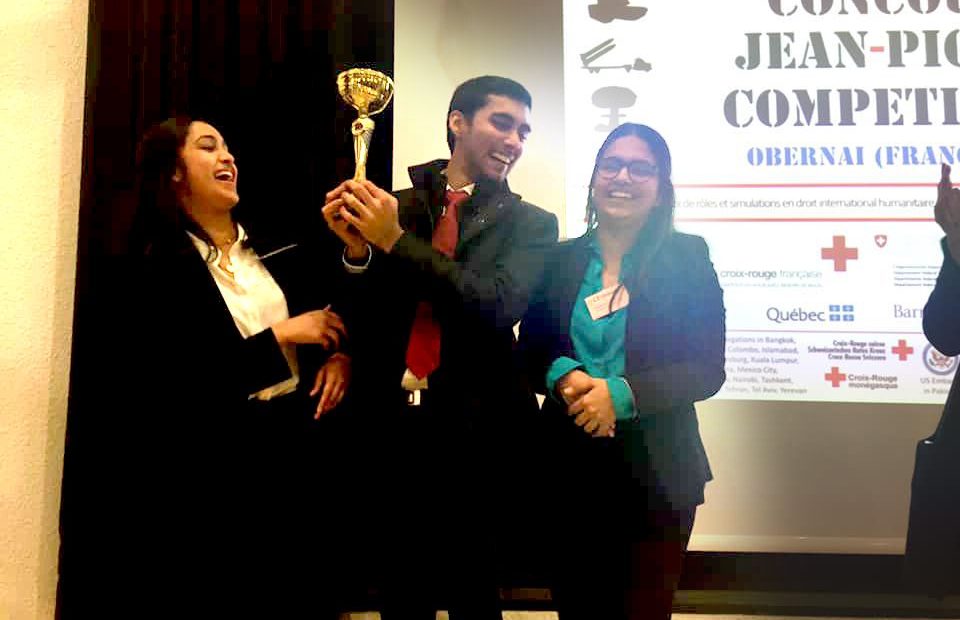The team from National Law School of India University, Bangalore (NLSIU) won the 31st edition of the Jean Pictet International Humanitarian Law Competition, 2019 which was held earlier this year in France. This was the first time an Indian team won the international competition. The Jean Pictet Competition – named after the principal artisan of the 1949 Geneva Conventions – allows students to constructively engage with the issues in international humanitarian law. In this piece, team members Bhavesh Seth, Unnati Ghia and Nikita share notes from their unique and enriching experience.
In our early years at law school, seniors who had been former participants at the Jean Pictet Competition often told us “What you do at Pictet cannot be described in words, it is an experience that has to be lived”. We would be confused after hearing this, but having gone through the incredible one-week journey at the 31st edition of the competition we could not agree more.
Although each one of us had developed an interest in international humanitarian law (IHL) through participation in various moot court competitions and internships, what we found lacking was an opportunity to gain a deeper understanding of the law. Most Indian law schools brush over IHL as a component of a broader international law course, which leaves students with no knowledge of its real-life application and professional career opportunities in the field. Given these glaring omissions in our curriculum and exposure, Pictet was an instinctively great choice for us to explore IHL.
The first important objective explained to us at Pictet was that the competition is about learning. Our interactions with the tutors, the judges and of course the teams reinforced the idea that the primary goal was to absorb as much as we could rather than winning. This emphasis permeates through all the tests and activities – the judges facilitate a nuanced understanding during the tests and do their best to assist you, the tutors help team members set standards and achieve them, and teams are encouraged to reflect on their rounds. This environment reduces the pressure on students and allows them to perform to the best of their abilities. The ‘Kitchen’ (problem drafters) creates innovative and exciting tests, which also makes the experience both challenging and enjoyable.
But more importantly, what truly set Pictet apart from any other student experience was the people we met during the course of that week. Pictet is very unique – for not only does it downplay the competitive aspect, but it also encourages participants from diverse backgrounds to meet and spend time with each other as well as with the tutors and the jury. Tutors would encourage teams to sit together in between tests, during and after meals, and meet new teams from different countries. Right from the location to the events planned during the week, everything is moulded to facilitate this kind of interaction. As we shared more about our culture, our academic system, our country’s politics and learnt more about those around the world, we realised that despite cultural differences, we are all often more similar than different. And that is why Pictet is an important experience for any student – not only does it expose you to an increasingly crucial area of law, but also allows you to form lifelong bonds with people you never would have had the good fortune of meeting.


